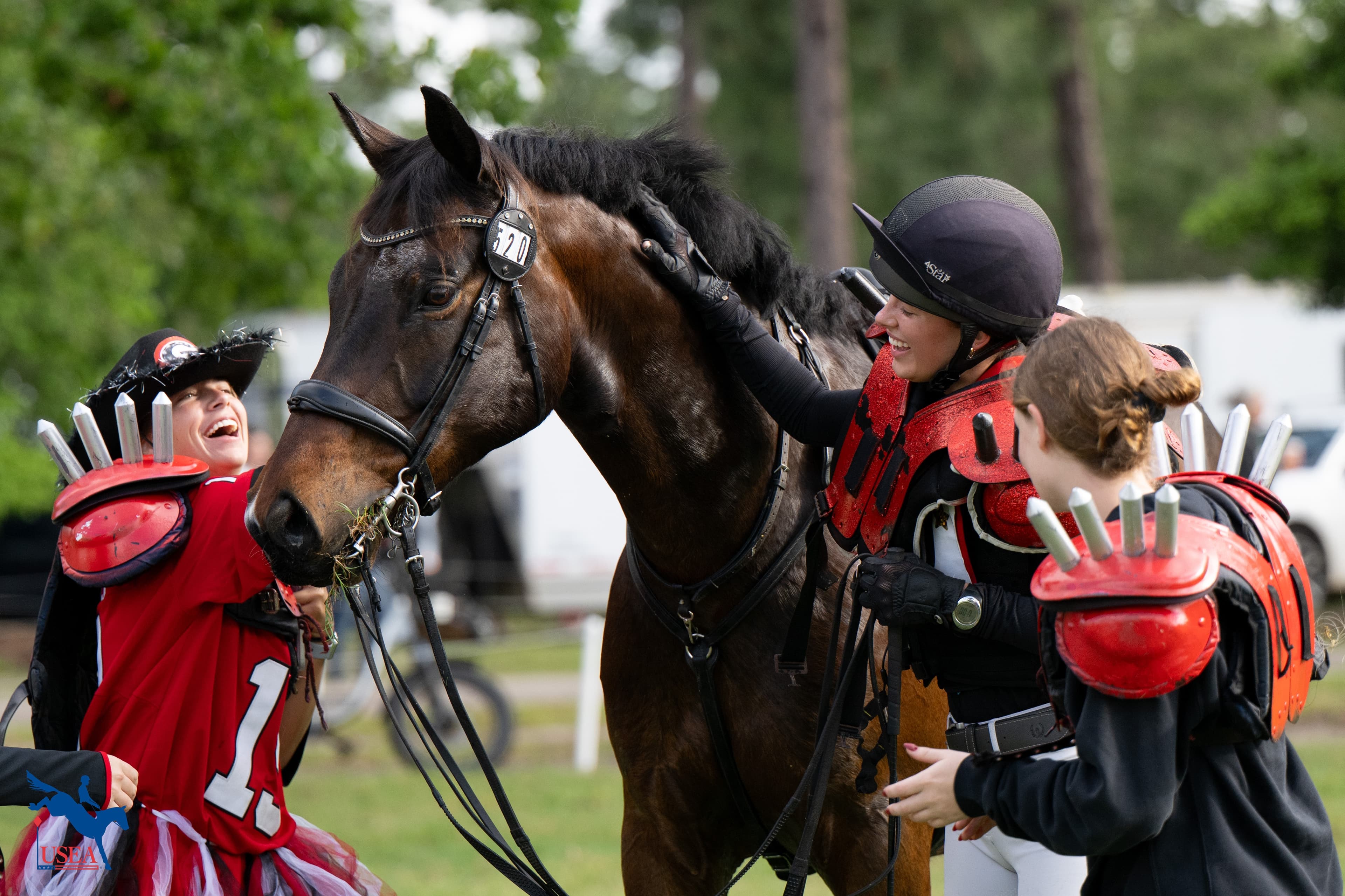USEA Events A-Z: Flora Lea Horse Trials
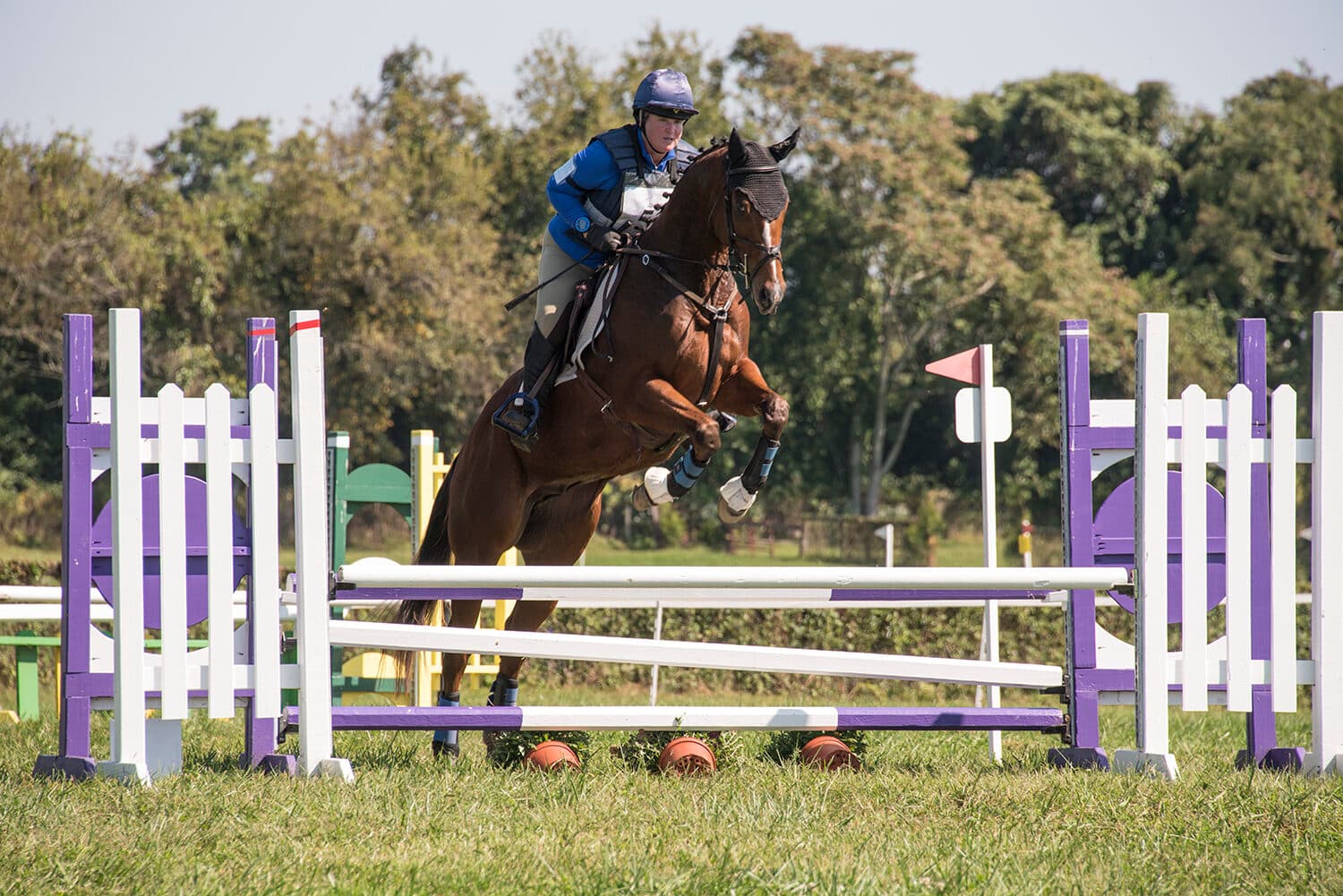
Flora Lea Farm in Medford, New Jersey (Area II) hosts a spring horse trial in May and a fall horse trial in September of each year, offering Beginner Novice through Preliminary levels. They host two unrecognized horse trials each year, are open for cross-country schooling year-round, maintain a lesson program, and offer summer camps. Flora Lea Farm is also the home of Kaleidoscope Therapeutic Riding Program.
Flora Lea Farm has been in the Adams family for over 100 years. In the 1950s, Paul Adams converted the New Jersey dairy farm into a farm exclusively for horses. Paul’s daughter, Debbie, who grew up on the farm like her father, graduated from the Morven Park Equestrian Institute in 1974. During her time at Morven Park, Debbie was introduced to and fell in love with the sport of eventing. After graduation, she returned home with the idea of starting a horse trial at Flora Lea Farm.
Flora Lea hosted its first USEA recognized horse trials on the last weekend in April of 1976. The event was run over one day and offered divisions up through Training level. Now, Flora Lea still runs all three phases in a single day, but hosts two full days of competition for Beginner Novice through Preliminary levels twice a year. “It’s an old idea brought back to life, and people love it,” explained Debbie, who still organizes the Flora Lea Horse Trials more than 40 years later. “They can bring their young horses or young students, get everything done, and go home. You don’t have to stable, you don’t have to get a hotel, you don’t have to make a big deal out of it. It’s a nice thing to be able to do.”
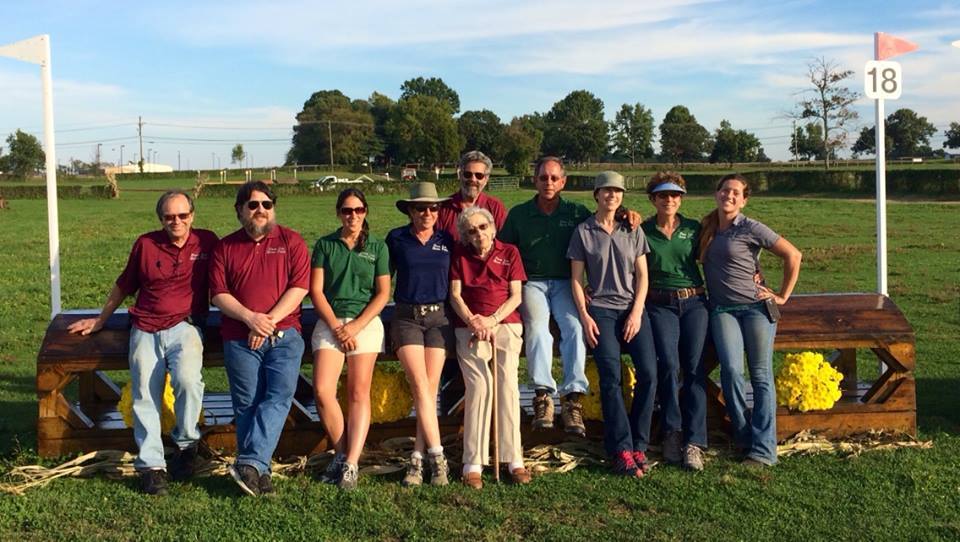
The Flora Lea Horse Trials have been a family affair from the very first year when Paul helped Debbie construct the farm’s first cross-country jumps. As the organizer, Debbie is the energizing force behind the event, but the event wouldn’t be possible without the contribution of the other members of her family. “Everybody has a job and everybody knows what their task is,” said Debbie.
Tony Rosati, Debbie’s husband, helps with all sorts of tasks leading up to the event and then works as the cross-country starter at the events. “He has gotten more involved over the years and he loves the sport just as much as anybody,” Debbie explained.
Debbie’s brother Ed has an excavation business and has been very involved with making improvements to the cross-country course. “We built the second water complex two years ago, so we now have two water complexes on our little 50 acres. But he can move all the portables, he can dig ditches, he’s capable of doing anything that we could classically call boy jobs,” laughed Debbie. Debbie’s other brother Ron is in charge of managing all communications equipment for the event including the radios and speaker system.
Ed’s wife Janie keeps track of all the little details, everything from ordering jump judge booklets and ribbons to renting chairs and port-a-potties. Then, during the competition, she volunteers as the show jumping steward. Their daughter Kelly is Flora Lea’s volunteer coordinator, and their other daughter Becky does all the scoring for the events.
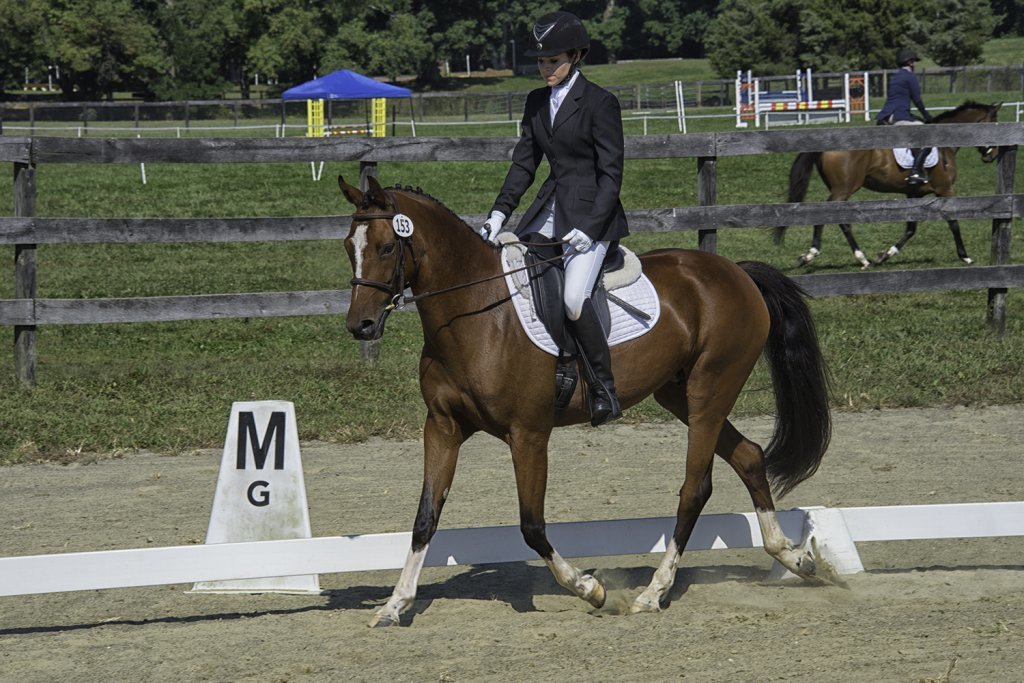
As an active competitor and licensed official, Debbie said that her focus for the Flora Lea Horse Trials is making it an event for the horse and rider. “We’re running it for them, we’re not running it for ourselves, so I try to do anything I can to make it work.” Being a competitor gives her a somewhat unique insight into organizing an event with the horse and rider in mind. “You start to know what you want in the warm-up, and you know not to place the port-a-potty where the door opens up towards the dressage warm-up, just little things that can wreck somebody’s day. Or how you schedule it, how much time you give them between phases, what kinds of cross-country jumps you put in the warm-up. Things that you tend to take for granted but that people actually put thought into.”
Debbie also explained that because the team at Flora Lea has been doing this for so long everything tends to run like a well-oiled machine, which is important to providing the riders with a good experience. “Everyone who works on the event, every volunteer, every official, knows their job so well that it runs like clockwork. The competitors feel like it’s a friendly atmosphere but, boy, it’s going to run on time.”
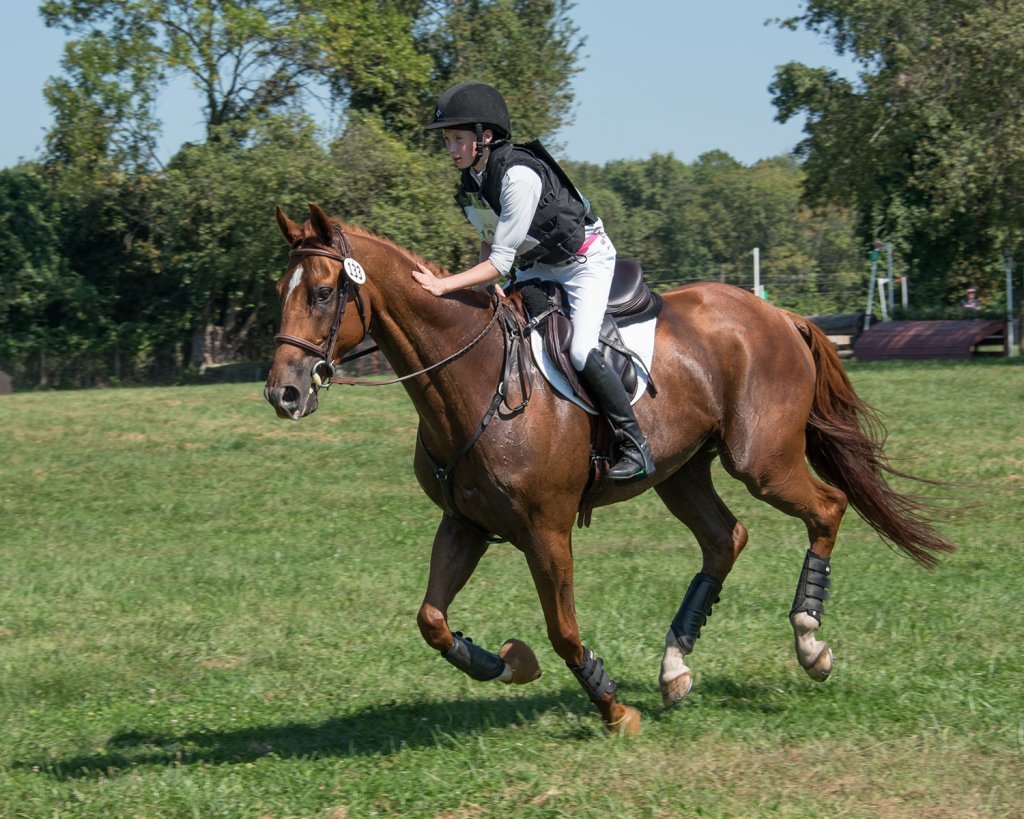
Flora Lea may only sit on 50 acres, but they use every inch of the property to their advantage. They run two dressage rings concurrently in the farm’s outdoor sand arena and the show jumping is held on grass. The cross-country courses, designed by Morgan Rowsell, span the remaining property, moving from open fields through wooded areas of the farm. The footing is a sandy soil mix with established turf that doesn’t get slippery or hard, making for excellent going most any time of the year. “That’s one of our big draws, that the quality of the footing is so good,” said Debbie.
“Even though it’s a one-day competition and it’s friendly, [the cross-country courses] really are up to level. Yes, you can say it’s introductory because the courses are shorter because of the land, but you’re not going to say that they’re easy,” Debbie elaborated. “We made a big move about seven years ago where we rebuilt everything, so the jumps are really lovely now.”
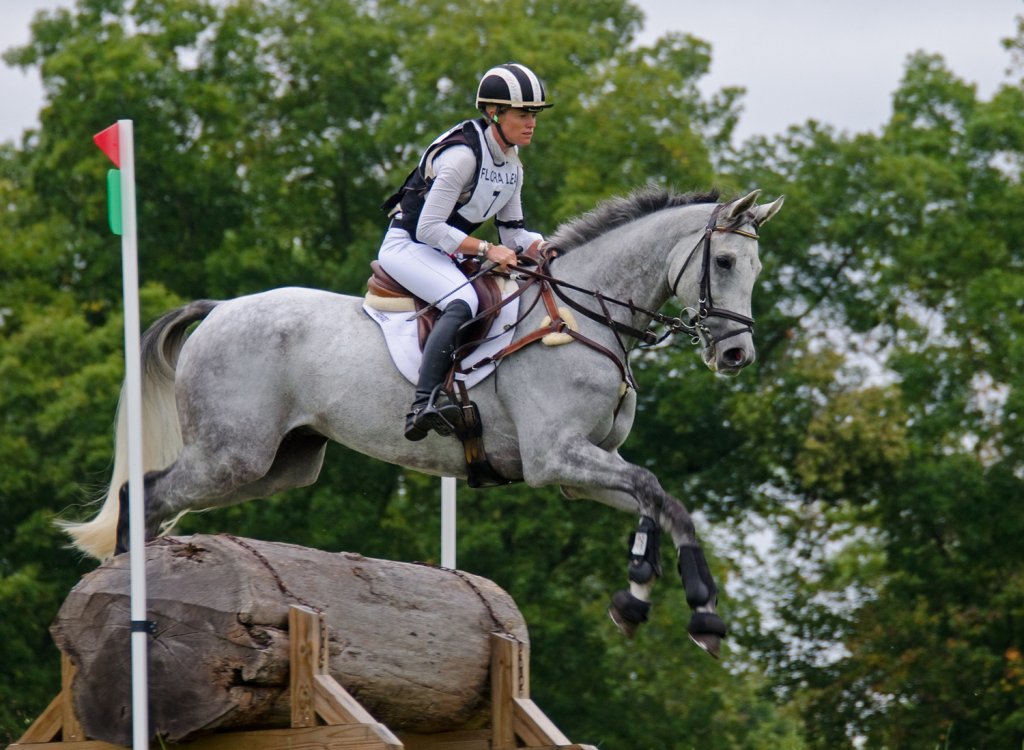
Hosting the Flora Lea Horse Trials is Debbie’s way of giving back to the eventing community. “It’s what I can give back to the sport,” she said. “You’re not going to make money. Yes, it does make a profit, but that goes back into more fences into other things on the farm. But two weekends a year I can give back to the sport and provide for people what I get the rest of the year.”
For Debbie, the most rewarding part of the whole event is the feedback she gets at the end. “Seeing horses jumping confidently, or getting feedback from somebody’s parents, just knowing that people had a good experience . . . The fact that a lot of the Area II professionals put either the spring or the fall event on their calendar just to get their horses a good outing, it makes you feel like you’re doing something right.”
“You’re going to have an absolutely fair and educational experience for your horses,” said Debbie of coming to compete at Flora Lea. “Each horse is going to go out on course and come home having had a fair experience appropriate for that level, so they will come home better educated. That is our goal.”
The USEA is profiling the history behind all USEA recognized events in the USEA Events A-Z series.


